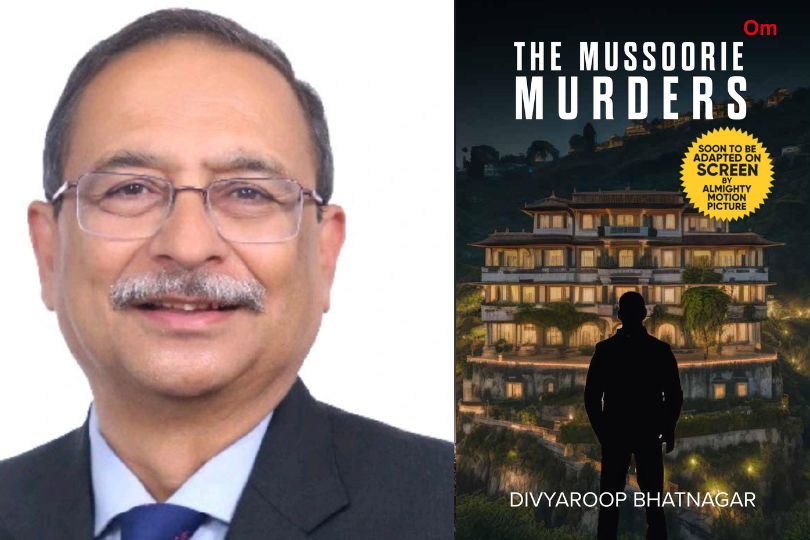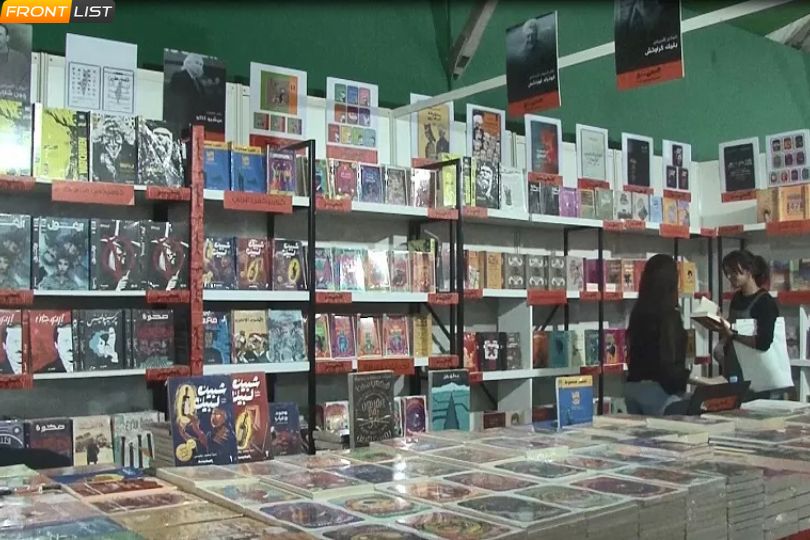Interview with Divyaroop Bhatnagar Author of “The Mussoorie Murders”
Explore the mysteries behind 'The Mussoorie Murders' in an exclusive interview with author Divyaroop Bhatnagar on Frontlist.on Dec 11, 2023

Divyaroop (Debu) Bhatnagar was born and brought up in Kanpur.As a child, he would go to Mussoorie with his family during his summer vacations, and the love for the place and the mountains has stayed with him forever. Debu studied at IIT Kanpur and IIM Calcutta and had a long career with consumer products companies in India and abroad as a CEO and an MD. Along with a few close friends and colleagues, he later set up a consulting company. Debu loves reading, travelling, golfing, and playing bridge. He has been writing since 2018 when his first book, Journey to the Hills and Other Stories, was published. He has two grown-up daughters and three lovely granddaughters and lives in Gurgaon with his wife, Devi.
Frontlist: What inspired you to write "The Mussoorie Murders" and delve into the mystery genre? Could you share any specific experiences or moments that sparked the idea for this novel?
Divyaroop Bhatnagar: The book's idea arose from a discussion with my literary agent, Suhail Mathur of The Book Bakers. I have always been a keen reader of detective fiction and a big fan of Mussoorie, which has been my summer home since my childhood. Suhail was saying that true crime is a very interesting genre, and it is then that the whole idea germinated.
Frontlist: "The Mussoorie Murders" is set in 1909 and a later period. How important was historical accuracy in your writing, and what kind of research did you undertake to capture the essence of those times?
Divyaroop: I have been an avid reader of Victorian and Edwardian fiction. Dickens, Arthur Conan Doyle, Rudyard Kipling, Saki, Maurice Le Blanc, and his Arsene Lupin series, and so on. I've also traveled extensively to the UK, especially London; hence, the early 20th Century period in England and India is familiar to me. In addition, I did extensive research on the net and in London museums to make the period feel right. Historical accuracy in all matters is very important for me.
As far as the 1970s is concerned, I'm old enough to have grown up at that time, and hence the period is familiar. The locations – Mussoorie, Mumbai, and Pune are all well-known to me.
Frontlist: Your book involves Sir Arthur Conan Doyle and Rudyard Kipling. How did their works influence your writing, and why did you choose them as part of the story?
Divyaroop: I have been a big fan of Arthur Conan Doyle's Sherlock Holmes stories. The structure of his stories and the detective's personality have undoubtedly influenced my writing.
The first murder of a British lady in Mussoorie is based on a true story. The case was very intriguing, but it was never solved. Rudyard Kipling did take an interest in it and even consulted his friend, Arthur Conan Doyle. Hence while their interaction is fictionalised, it is based on reality.
Frontlist: Your protagonist, Avijit Sikdar, is an Oxford-returned detective. What challenges did you face in creating a compelling and unique detective character?
Divyaroop: Avijit Sikdar is tall and thin, rather like Holmes. He's very well-dressed, fastidious, and has a huge amount of curiosity about the world around him. He has a quirky sense of humor at times, and oh yes! He's a gourmet who believes in feeding the little grey cells. He's not difficult or domineering but operates smoothly, carrying people with him. So yes, he's part Poirot, part Holmes but speaking a unique person in his own right!
Frontlist: Crafting a locked-room mystery is a significant challenge. How did you approach constructing this intricate puzzle for your readers to solve?
Yes, that did involve a fair amount of inventive thinking! I really enjoyed crafting the puzzles to ensure that there were no loose ends, and that took some doing. And when you have two such murders – well, the details just multiply!
Frontlist: Mussoorie is not only a setting but almost a character in your book. How did you capture the atmosphere and essence of this location in your writing?
Divyaroop: Mussoorie has been a part of my life since I was born. I have a house there and have been going there for a very long time. Hence, the atmosphere and the essence of the place are really a part of me. I feel this adds authenticity and a sense of connection that is very important for the book.
Frontlist: Your book is going to be coming out as a Television series, how do you feel about it? Also, who do you believe would be the ideal audience for "The Mussoorie Murders," and what do you hope they take away from the book?
Divyaroop: I am delighted about this. The Audio-Visual rights have been bought by Mr Sunil Bohra, the producer of successful films like Gangs of Wasseypur and Tanu weds Manu, so I feel it is in safe hands.
The ideal audience for The Mussoorie Murders is fans of classic detective fiction writers like Arthur Conan Doyle and Agatha Christie. Rather surprisingly, I find that young people are also developing a taste for these writers. I suppose a classic never goes out of style. Hence, I do feel that the age group that my book would appeal to is almost universal.



.jpg)






.jpg)

.jpg)

.jpg)
.jpg)
.jpg)
.jpg)










Sorry! No comment found for this post.